Reviewing a biography of Arkle, Peter O’Sullevan wrote, ‘He had an obit to die for.’ So did The Voice himself. It could have been a sad Goodwood with the death of the greatest racing journalist and the retirement of champion jockey Richard Hughes, the stylish equine burglar who stole so many last-gasp victories on the difficult undulating track, but instead it proved to be as Glorious a week as ever celebrating those two fantastic careers.
Peter O’Sullevan (like his late friend Lord Oaksey) drew countless thousands of us into racing with his ability to convey the excitement of the sport in print or behind the microphone. He then kept us there with his wit, his compassion and his instinctive ‘sens du cheval’. Among my treasured racing memories is a visit to Peter’s art-studded Chelsea flat and the long liquid lunch that followed: not only could he have called every faller in the Charge of the Light Brigade, the subtleties of timing and emphasis in his telling of an anecdote made him as much the master of that art as his friend Lester Piggott was of the saddle.
The series of admiring obits have testified to Peter’s immaculate sources, especially in France, and his successful punting. They have chronicled, too, the intensive preparation for all those honeyed gravel commentaries on racing’s great events, including50 Grand Nationals. His impeccably illustrated colours cards, carefully annotated, were a sight to see and most of my precious racing recollections run through my mind to an O’Sullevan soundtrack. What is sometimes forgotten is the physical courage he showed in the face of scarring childhood illnesses and his record as a campaigner — for starting stalls, against the use of the whip and for a wide range of animal-welfare charities. The last sentence in my well-worn copy of his Calling the Horses concludes with a reference to ‘those whose aim is to add the missing letter “e” to the human race’. That he certainly helped to do.
Hughesie may have been denied a winner on his final day in the saddle last Saturday before setting up as a trainer, but the Hughes and Hannon clans, his fellow jockeys and the Goodwood crowd still made it a send-off to remember for a career that has included not only 2,440 winners and three years as champion jockey but a formidable battle to keep to a riding weight and the most searingly honest sportsman’s autobiography that I have ever read, chronicling his descent into alcoholism and the climb back out of it.
Flat jockeys who become trainers do not always succeed but the betting is that Richard Hughes will, not only because his father Dessie did but because he is not only one of the bravest men in the saddle, attempting manoeuvres no one else would dare, but also one of the most thoughtful. Ghosted jockey columns in the media are rarely worth reading: the column that Hughesie has contributed to the Racing Post has been genuinely informative. I have learned more from it about Britain’s tracks and about riding tactics than from 30 years of conversations with his competitors. Having done a bit of ghosting in my time, I can testify that most sportsmen or politicians offered the opportunity simply take the money and run. Not Richard Hughes. Lee Mottershead, the award-winning journalist who works on Hughesie’s column with him, testifies that the champion jockey insists on every word being right.
Other reflections on Goodwood this year include the memo to self not to be so lazy in future about studying the form of foreign opposition. I cleaned up on David O’Meara’s Move In Time in the Prix de l’Abbaye at Longchamp last year because the French don’t take much notice of British horses and allowed him to start at 30-1 on the Pari-Mutuel. But the same thing happens in reverse too. With Goodwood Qatari-sponsored for the first time, Doha trainer Jassim Al Ghazali had brought Dubday to be prepared in Newmarket and to run in the Betfred Glorious stakes on the Friday. Only after he had won with Frankie Dettori at a generous 11-2 were we reminding ourselves that he was unbeaten in his native country. Later, in the L’Ormarins Queen’s Plate Stakes, Amy Eria, also running in the Al Shaqab colours for French trainer François Rohaut, triumphed at 33-1. Early birds had taken 50-1. M. Rohaut had begged the owners to let him send only his second runner to Goodwood in 25 years. For jockey Gregory Benoist, who narrowly beat Frankie Dettori on another Al Shaqab entrant, it was his first ever visit. ‘Strange track but one ride, one winner. Not bad, eh?’ he told me with a grin. I am sure Peter O’Sullevan would have been on them both.
On the final day we had the unusual sight of a winner for the Queen, the Sir Michael Stoute-trained Dartmouth, being ridden by a French jockey, Olivier Peslier. Peter would probably have been on that too. His sources were always said to have reached well within palace walls.
Got something to add? Join the discussion and comment below.
Get 10 issues for just $10
Subscribe to The Spectator Australia today for the next 10 magazine issues, plus full online access, for just $10.

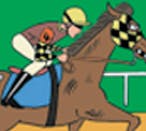
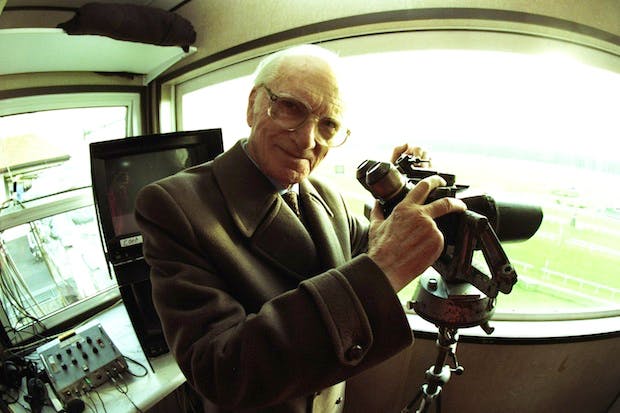

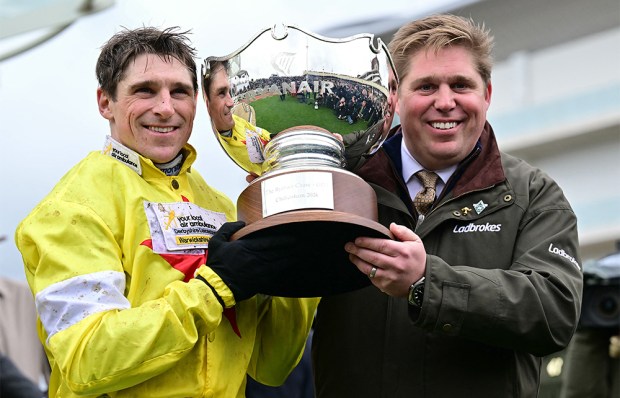
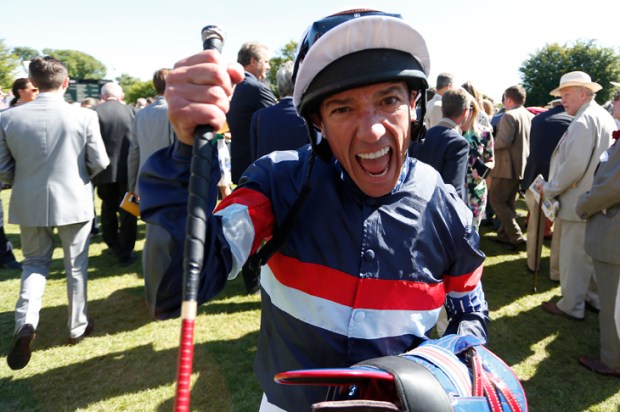
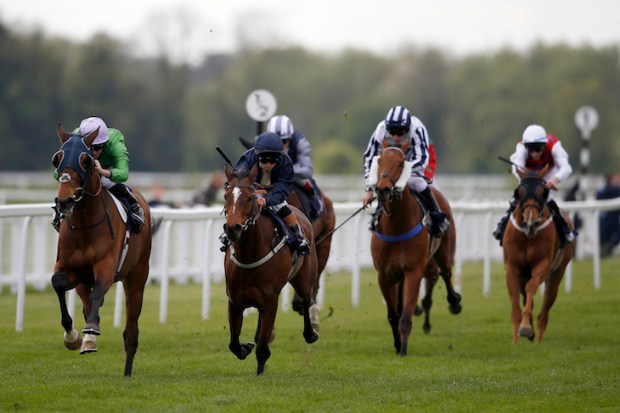
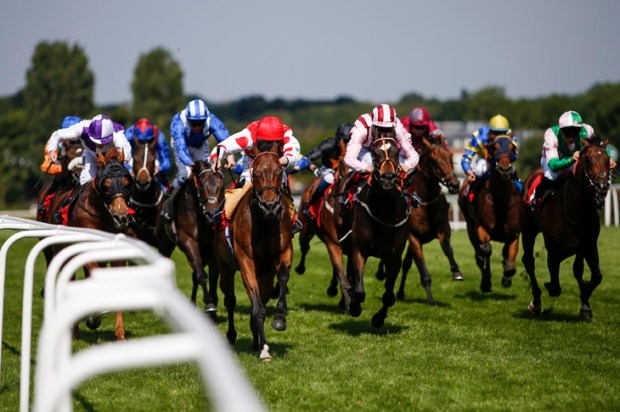






Comments
Don't miss out
Join the conversation with other Spectator Australia readers. Subscribe to leave a comment.
SUBSCRIBEAlready a subscriber? Log in